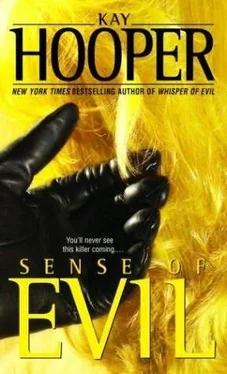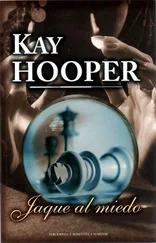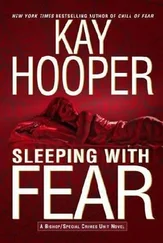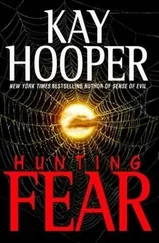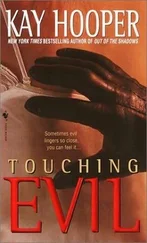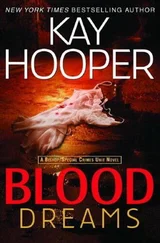She doubted any of the women were complaining. She certainly didn’t; anytime she was outside alone, she tended to spend a lot of time looking back over her shoulder and jumping at shadows.
By tacit consent, neither of the men left her until her car was unlocked, the door open, and the interior light showing them all an empty, unthreatening little Honda.
“Lock your doors,” Dean Emery advised.
“You bet. Thanks, guys.” She got in and immediately locked the doors and started the car, absently looking after them until both reached and safely entered their own cars.
Not that the guys had to worry, really.
So far, anyway.
Ginny was hardly a profiler, but she did have a semester of Abnormal Psychology under her belt, and she vividly recalled the section about serial killers, especially since it had given her nightmares for weeks.
Very few serial killers murdered both men and women. There had been killers who targeted both male and female children or young people, but when the targets were adults, they were almost always one sex.
A homosexual serial killer targeted men or young males, and a heterosexual killer targeted women or girls, as a rule. Though some homosexual killers, or men who were insecure sexually and feared they might be homosexual, had been known to target women out of sheer rage. They didn’t want to be whatever they were, and they blamed women for it.
The very rare female serial killers went after men, or apparently had so far-except in the rather frighteningly common cases of women poisoning children or other family members, when they tended not to differentiate between the sexes.
Have some soup, dear. Oh, it tastes funny? That’s just a new spice I’m trying out.
Jesus.
The things people got up to.
Ginny pulled her car out of the lot and headed for home, still pondering, mostly because her mind refused to let go of the subject.
What did he look like? Did she pass him on the street every day? Did she know him? He was strong, very strong; the medical report on Tricia Kane said that he’d driven a large knife into her chest to the hilt.
Ginny shivered.
What kind of rage did it take to do something like that? And how had Tricia aroused it in him? Just by being blond and successful? Just by being female?
Just by being?
When Ginny had colored her bleached hair back to something approximating its natural dark brown a week or so before, not a soul at the station had laughed or even commented, and her friends said it was wise of her. No reason to take stupid chances, after all, not when she was a cop in the thick of things.
Her mother had been visibly relieved.
Her father had said at least it made her look less like a whore.
As she pulled her car into the driveway, Ginny felt all her insides tighten. He was home, and judging by the crooked way his car was parked, he had, as usual on a weekend, spent the afternoon drinking.
Shit.
Still in the car, she removed her holster and locked it securely away in the glove compartment. When she got out, she locked the car up as well.
She never took the gun with her into the house. Never.
It was too tempting.
She went up the steps and used her key to let herself in, silently telling herself for the hundredth time that she had to get her own place, no matter what. And soon.
“Hey, little girl.” His voice was slurred, his mouth wet. “Where you been?”
Her own voice deadened, Ginny replied, “At work, Daddy,” and pushed the door closed behind her.
ISABEL LOOKED AT RAFE with a faint smile. “You didn’t expect that, did you? That evil could be beautiful.” She wondered if he understood. If he could even begin to understand.
“No.”
“Of course not. It should be ugly, that’s what everyone expects. Red eyes, scaly flesh, horns and fangs. It should look like it was born in hell. At least that. At least. It should breathe fire and brimstone. It should burn to the touch.”
“But it doesn’t.”
“No. Evil always wears a deceptive face. It won’t be ugly, at least not until it really shows itself. It won’t look like something bad. That would be too easy to recognize. Too easy for us to see. Because the important thing, the thing evil does best, is deceive.”
“And it deceived you.”
She laughed, the low sound holding no amusement. “It wore a handsome face, when it first showed itself to me. A charming smile. It had a persuasive voice, and it knew all the right words to say. And the touch of it was kind and gentle. At least in the beginning.”
“A man. Someone you cared about.”
Isabel crossed her arms beneath her breasts, unconsciously adding yet another barrier between them, but she continued speaking in a toneless voice.
“I was seventeen. He was a little older, but I’d known him all my life. He was the boy in the neighborhood everybody depended on. If an elderly widow needed her yard mowed, he’d do it-and refuse payment. If anybody needed furniture moved, he’d offer to help. Stuck for a baby-sitter? He was there, always reliable and responsible, and all the kids-all the kids-adored him. The parents trusted him. Their sons considered him a buddy. And their daughters thought he walked on water.”
“Deceiving everyone.”
She nodded slowly, her gaze fixed on the table now, eyes distant. “The weird thing is, after taking all the time and trouble to deceive everybody around him for such a long, long time, when it came right down to it, it didn’t take much at all to start revealing the beast inside.”
Rafe was very much afraid he knew where this was going, and it required an effort to hold his voice steady when he asked, “What did it take?”
“ No. Just that. Just one little word.” She looked up, focused on him. “That was the beginning. He asked me to a school dance, and I said no.”
“What did he do, Isabel?”
“Nothing then. I told him I didn’t feel like that about him, that he was more of a brother to me. He said it was a shame, but he understood. A few days later, I saw him in the bushes outside my house. Outside my bedroom. Watching me.”
“You didn’t call the cops,” Rafe guessed.
“I was seventeen. I trusted him. I thought he was just… taking the rejection badly. Maybe I was even a little bit flattered on some level of myself, that it mattered so much to him. So I just closed the curtains. And kept them closed. But then he started… turning up wherever I was. Always at a distance. Always watching me. That was when I started to be… just a little bit afraid.”
“But you still didn’t report it.”
“No. Everybody loved him, and I think I was half afraid nobody would believe me. I confided in my best friend. She was envious. Said he had a crush on me, and I should be flattered.” She laughed, again without humor. “She was seventeen too. What do you know, at seventeen?
“I tried to feel flattered, but it was getting more and more difficult to feel anything but scared. I could take care of myself, I knew self-defense, but… there was something in his eyes I’d never seen before. Something angry. And hungry. And I didn’t understand why, but it terrified me.”
Rafe waited, unable to ask another question. He wished they were somewhere more private yet had a strong hunch that, if they had been, Isabel wouldn’t have been willing-or able-to confide in him about this. He thought she needed the insulation of a semipublic place for this. There were people here, even if not close by. Food and music and an occasional quiet laugh from another part of the room.
Normality here.
He thought Isabel was afraid she wouldn’t be able to hold it together enough to talk about this if they were alone. Either that or she had chosen, quite deliberately, to tell him this without even a shadow of intimacy. With a table between them in a public place, where the ugliness could be softened or blurred or even discarded at the end with a game shrug and a bland But it happened years ago, of course.
Читать дальше
